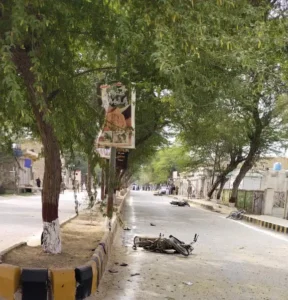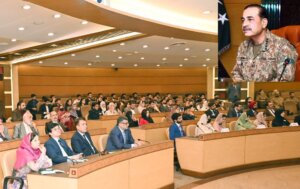Qaseem Shah:
QUETTA – A shocking revelation emerged during the Balochistan Assembly’s Public Accounts Committee (PAC) meeting, where it was disclosed that 600 out of 800 cameras installed under the Quetta Safe City Project are nonfunctional despite Rs9 billion having been spent on the initiative.
The meeting, chaired by Asghar Ali Tareen, reviewed audit reports concerning the Quetta Safe City Project, the Prisons Department, and the Information Department. Committee members expressed serious concern over the award of a Rs2.28 billion illegal contract, terming it a blatant violation of Balochistan Public Procurement Rules (BPPR) 2014.
Officials revealed that the project contract was granted to the Special Communication Organization (SCO) even though the National Radio and Telecommunication Corporation (NRTC) had scored higher both technically and financially.
Chairman Asghar Ali Tareen criticized the project’s performance, stating that “spending billions of rupees without ensuring public safety reflects poor planning, weak financial management, and negligence.” He added that when a young boy named Mansoor was abducted in Quetta, most cameras were inactive, demonstrating the project’s failure to achieve its primary purpose.
PAC member Haji Muhammad Khan Lehri said it was “astonishing that a project initially worth Rs1.7 billion was revised upward four times, reaching Rs9 billion in clear violation of procurement rules.”
Wali Muhammad Noorzai added that officials “arbitrarily negotiated rates with firms,” bypassing transparency, while Ghulam Dastagir Badini remarked that “institutions seem more interested in passing time than delivering results.”
Safia Bibi, another committee member, called the department’s response “unsatisfactory,” saying that “such massive financial mismanagement in a poor province is unacceptable.”
The committee decided that PAC members will personally inspect the project site and directed the Chief Secretary Balochistan to conduct an inquiry within a month. It warned that if the findings were not satisfactory, the case would be referred to NAB for further investigation.
PAC also took strict notice of Rs230 million in unauthorized advance payments, ordering the concerned department to ensure full recovery within 15 days.
In a separate discussion on the Prisons Department’s audit, the committee highlighted Rs11.3 million in tax losses due to under-deduction and procedural irregularities. The PAC directed the department to hold a Departmental Accounts Committee (DAC) meeting within a week and submit a report.
The Inspector General of Prisons informed the meeting that the department faces severe financial constraints, often unable to repair basic infrastructure such as tube wells. The PAC instructed immediate steps to improve health, sanitation, and rehabilitation facilities in prisons, and recommended revising staff salaries and allowances to match other departments.
Regarding the Information Department, the audit report revealed that from 2018 to 2021, the department spent Rs424.7 million on advertisements but failed to deduct Rs56.5 million in BSTS tax. The PAC directed a comprehensive review of all expenditures and ordered the recovery of the outstanding tax amount.
In his concluding remarks, Chairman Asghar Ali Tareen said the Public Accounts Committee remains committed to ensuring transparency, accountability, and financial discipline across all provincial departments. “Irregularities and weak governance will not be tolerated,” he asserted, instructing all departments to comply with PAC directives within the stipulated timelines.






